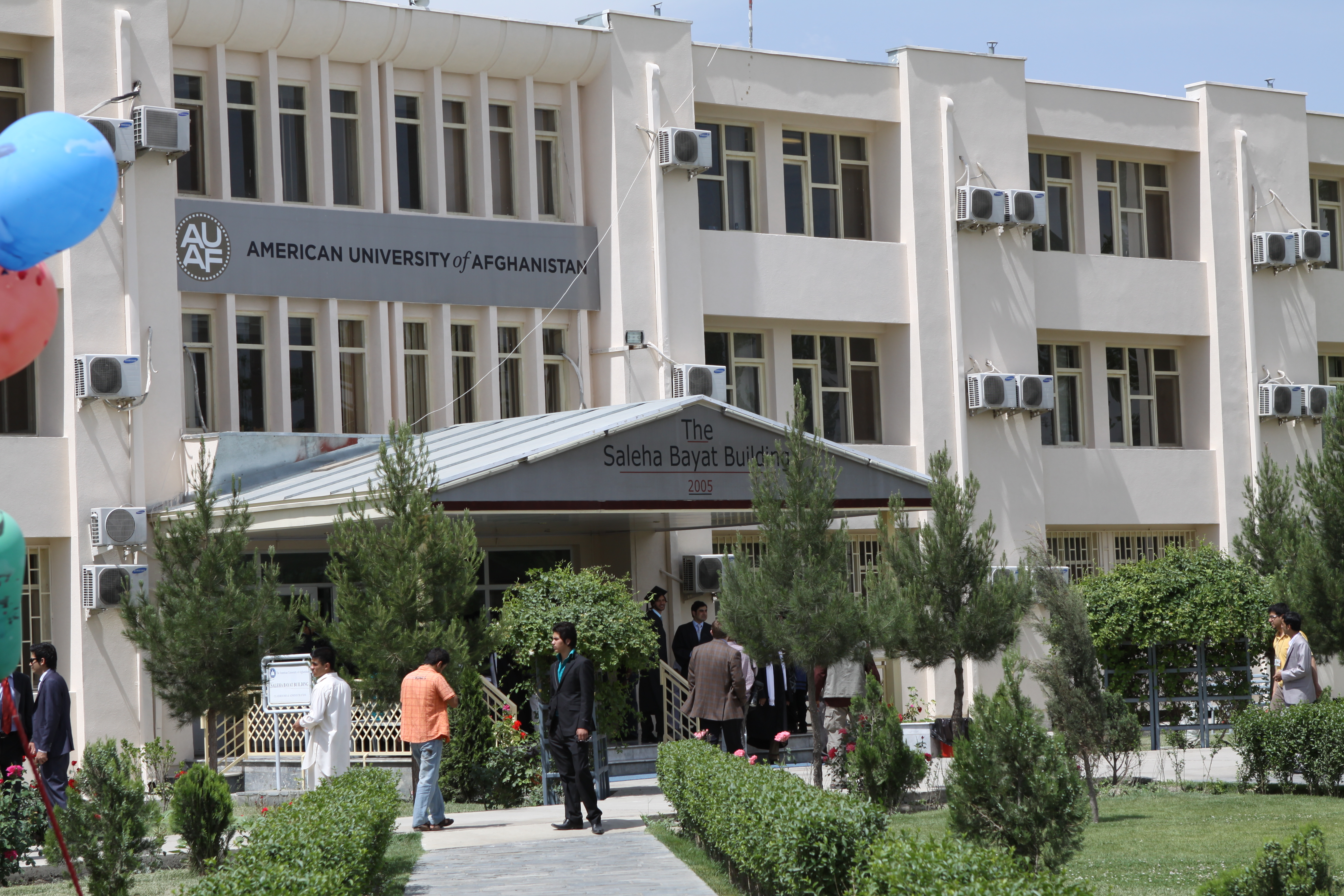|
Afghan German Management College
The Afghan German Management College (AGMC) was a German-Afghan NGO. It was established at the beginning of 2006 in the German city of Koblenz Koblenz (; Moselle Franconian: ''Kowelenz''), spelled Coblenz before 1926, is a German city on the banks of the Rhine and the Moselle, a multi-nation tributary. Koblenz was established as a Roman military post by Drusus around 8 B.C. Its na .... Until 2007 this institution was known under the name of ''Afghan Business School.'' The AGMC offered management knowledge in English language for students in Afghanistan. The lectures were taught via distant-learning. As of 2012, the college was in the process of ceasing operations. Organisation The college was headed by the Founder and President Bastian Kuhl. Dr. Andreas Philipp was the scientific counselor. References {{reflist Education in Afghanistan Educational organisations based in Germany Non-profit organisations based in Rhineland-Palatinate ... [...More Info...] [...Related Items...] OR: [Wikipedia] [Google] [Baidu] |
Germany
Germany, officially the Federal Republic of Germany (FRG),, is a country in Central Europe. It is the most populous member state of the European Union. Germany lies between the Baltic and North Sea to the north and the Alps to the south. Its 16 constituent states have a total population of over 84 million in an area of . It borders Denmark to the north, Poland and Czechia to the east, Austria and Switzerland to the south, and France, Luxembourg, Belgium, and the Netherlands to the west. The nation's capital and most populous city is Berlin and its main financial centre is Frankfurt; the largest urban area is the Ruhr. Settlement in what is now Germany began in the Lower Paleolithic, with various tribes inhabiting it from the Neolithic onward, chiefly the Celts. Various Germanic tribes have inhabited the northern parts of modern Germany since classical antiquity. A region named Germania was documented before AD 100. In 962, the Kingdom of Germany formed the ... [...More Info...] [...Related Items...] OR: [Wikipedia] [Google] [Baidu] |
Afghanistan
Afghanistan, officially the Islamic Emirate of Afghanistan,; prs, امارت اسلامی افغانستان is a landlocked country located at the crossroads of Central Asia and South Asia. Referred to as the Heart of Asia, it is bordered by Pakistan to the east and south, Iran to the west, Turkmenistan to the northwest, Uzbekistan to the north, Tajikistan to the northeast, and China to the northeast and east. Occupying of land, the country is predominantly mountainous with plains in the north and the southwest, which are separated by the Hindu Kush mountain range. , its population is 40.2 million (officially estimated to be 32.9 million), composed mostly of ethnic Pashtuns, Tajiks, Hazaras, and Uzbeks. Kabul is the country's largest city and serves as its capital. Human habitation in Afghanistan dates back to the Middle Paleolithic era, and the country's Geostrategy, strategic location along the historic Silk Road has led it to being described, pict ... [...More Info...] [...Related Items...] OR: [Wikipedia] [Google] [Baidu] |
Koblenz
Koblenz (; Moselle Franconian: ''Kowelenz''), spelled Coblenz before 1926, is a German city on the banks of the Rhine and the Moselle, a multi-nation tributary. Koblenz was established as a Roman military post by Drusus around 8 B.C. Its name originates from the Latin ', meaning "(at the) confluence". The actual confluence is today known as the " German Corner", a symbol of the unification of Germany that features an equestrian statue of Emperor William I. The city celebrated its 2000th anniversary in 1992. It ranks in population behind Mainz and Ludwigshafen am Rhein to be the third-largest city in Rhineland-Palatinate. Its usual-residents' population is 112,000 (as at 2015). Koblenz lies in a narrow flood plain between high hill ranges, some reaching mountainous height, and is served by an express rail and autobahn network. It is part of the populous Rhineland. History Ancient era Around 1000 BC, early fortifications were erected on the Festung Ehrenbreitstein ... [...More Info...] [...Related Items...] OR: [Wikipedia] [Google] [Baidu] |
Education In Afghanistan
Education in Afghanistan includes K–12 and higher education, which is under the Ministry of Education and Ministry of Higher Education. In 2021, there were nearly 10 million students and 220,000 teachers in Afghanistan. The nation still requires more schools and teachers. Soon after the Taliban takeover of the country in August 2021, they banned girls from secondary education. In December 2022, the Taliban government also prohibited university education and primary education for females in Afghanistan, sparking protests and international condemnation. According to Acting Education Minister Noorullah Munir, "Afghanistan has 20,000 official schools in which 9,000 are of no use, 5,000 have no building and the remaining 4,000 needed rehabilitation." Compulsory education in Afghanistan is through the ninth grade. "The academic year consists of 2 semesters, and runs from March to January." Since the Taliban takeover of Afghanistan in August 2021, officials under the Islamic Emir ... [...More Info...] [...Related Items...] OR: [Wikipedia] [Google] [Baidu] |
Educational Organisations Based In Germany
Education is a purposeful activity directed at achieving certain aims, such as transmitting knowledge or fostering skills and character traits. These aims may include the development of understanding, rationality, kindness, and honesty. Various researchers emphasize the role of critical thinking in order to distinguish education from indoctrination. Some theorists require that education results in an improvement of the student while others prefer a value-neutral definition of the term. In a slightly different sense, education may also refer, not to the process, but to the product of this process: the mental states and dispositions possessed by educated people. Education originated as the transmission of cultural heritage from one generation to the next. Today, educational goals increasingly encompass new ideas such as the liberation of learners, skills needed for modern society, empathy, and complex vocational skills. Types of education are commonly divided into formal ... [...More Info...] [...Related Items...] OR: [Wikipedia] [Google] [Baidu] |


